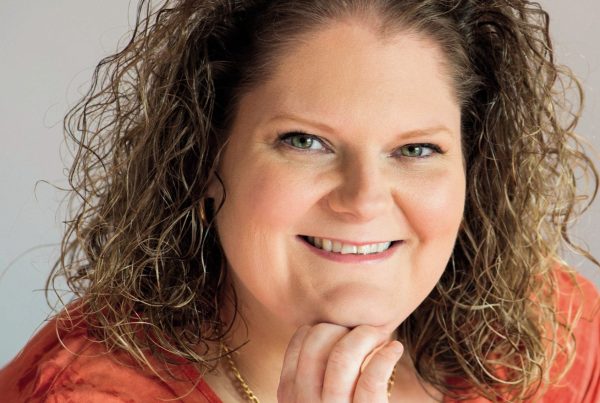Assisted reproductive technology allows couple struggling with infertility to become parents. IVF is one of the most successful technologies. Research shows that the live birth rate for each IVF cycle ranges from 40 to 43 percent for women under age 37, and from 13 to 18 percent for women over 40yrs.
Someone once remarked that the average cost of an IVF cycle including the cost of medications in Nigeria is the price of a good Tokunbo (used) car. Everyone has a fair idea of what a good used car costs on average, but perhaps what matters to most people is that they are not always sure how they would pay for it.
Like many fertility treatments, IVF can be expensive, true, but it is affordable. It all depends on perspective.
IVF is a multistep process requiring an egg, sperm, and a uterus. The process involves several rounds of medical procedures in which a woman’s mature eggs are collected, fertilized by sperm, and then transferred into the uterus.
Your doctor will prescribe hormonal drugs, usually given via injections, to stimulate hyper ovulation to generate the eggs for IVF. Once the eggs are mature, a fertility specialist collects the eggs. Fresh or frozen sperm are prepared and then placed in a laboratory dish and given the chance to fertilize.
If a sperm fertilizes an egg, it becomes an embryo.
Embryos are placed in an incubator and monitored for several days. Embryos that develop successfully in the incubator can then be transferred into your uterus during a quick procedure that doesn’t require anaesthesia or frozen for later use. Two weeks after the embryo transfer, a blood test can determine whether or not the transfer resulted in a pregnancy.
One round of IVF is not usually enough and you may need to undergo multiple rounds of IVF, inflating the total cost. The average fertility patient undergoes two or more cycles, so the cumulative IVF costs could be substantial.
Before you assume you can’t afford IVF, get a quote from your clinic and others. Let’s say your clinic gives you a price quote of X naira. You go online, find another clinic, and they tell you they can give you a cycle for Y naira. Should you switch clinics?
You should price shop when looking at IVF treatment. Take into consideration both the quality and the cost. However, before you jump to a clinic for a lower price, make sure you’re getting a full quote.
If one clinic is giving you the estimated price for everything, while another clinic is telling you the cost only for the IVF procedure itself, you can’t compare the numbers.
When you get a quote, ask the clinic if the price includes any details such as pre-IVF fertility testing or consultations.
Be aware that the clinic may require you to repeat tests you’ve already had. If you choose a clinic far from home, don’t forget to include travel, hotel, and time off work costs.
It helps if you track your out-of-pocket expenses over a period including what you paid for the IVF itself, as well as medications and monitoring.
You may pay for medications, genetic testing, diagnostic tests and lead-up doctor’s appointments. You may also have paid previously to have your eggs frozen or secure donor sperm.
Before you panic, remember that there are ways to get discounts and pay less for IVF. There are also bulk IVF and refund programmes run by some clinics and fertility centres.
If you’re considering IVF, figuring out how to pay for it is likely a major factor in your decision, and it’s wise to plan ahead to cover the costs.
It is no secret that in this environment, the family is a strong pillar of support and when it comes to infertility treatment, the family is often there to help. Parents, friends or in-laws are always at hand to offer help. You could also save up or take out private loans or ask to borrow from family and friends.
The long and short of it is that IVF is not cheap. However, your actual costs may be less if you have access to health insurance benefits that cover infertility treatments.
For many people, time could be in short supply when considering IVF, so the need to access funds quickly may take away the opportunity to save or budget for this expense.
With additional assisted reproductive technologies, the cost will be higher. For example, ICSI treatment, where a single sperm is injected directly into an egg, is an additional cost in some clinics. Also, PGD, genetic testing of embryos, embryo freezing, including the initial freezing and storage, are additional costs.
If you have frozen embryos from a previous cycle and want to use them, doing so is significantly cheaper than doing a complete IVF cycle with fresh embryos. If you plan on using an egg donor, the overall cost will be significantly higher. Using a sperm donor is less expensive, than using egg donor. However, surrogacy is the most expensive of all IVF options because of the legal fees, agency fees, IVF costs, and payment for the surrogate’s upkeep during the period of treatment and pregnancy. Embryo donation is the least expensive donor option and it’s cheaper than a regular IVF cycle.
Many fertility clinics offer payment programmes to help make IVF treatment more affordable. Don’t write off IVF before you talk to your clinic about your options.
While price comparisons are important when choosing a fertility clinic, you should also consider their success rates. If an IVF clinic has a very low price, but their success rates are low and multiple cycles may be needed, then choosing the cheaper clinic isn’t worth the while.





